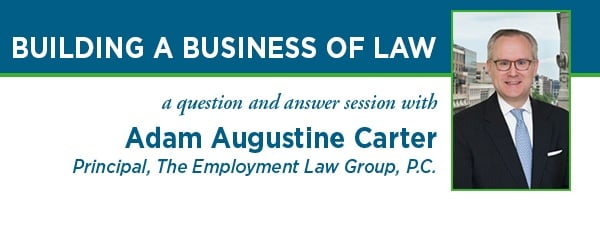Owner of employment law and False Claims Act practice speaks on the importance of business acumen in...
Blog
Kelly Anthony, Esq., Assistant General Counsel Takeda Pharmaceuticals Company Limited, together with...
Although U.S. courts are typically slow to adopt technological innovations, there has been a recent ...
At least four people apparently believe it does. Within the past week, LinkedIn made headlines over ...
A jury in Bakersfield, California, has returned a $5.7 million verdict against Johnson & Johnson...
On Thursday, February 19, 2015, LinkedIn unveiled its newly enhanced platform of business-to-busines...
United States District Court Judge, Hon. Nicholas G. Garaufis, on February 19, 2015, issued a 150-pa...
On Thursday, January 8, 2015, U.S. District Judge Cynthia Rufe of the Eastern District of Pennsylvan...
On Monday, November 3, 2014, Stryker Corporation announced it would pay at least $1 billion to settl...
Counsel Financial was pleased to host a gathering of many prominent female mass tort attorneys durin...
A University of Central Florida football student?athlete with sickle cell trait died after collapsin...



